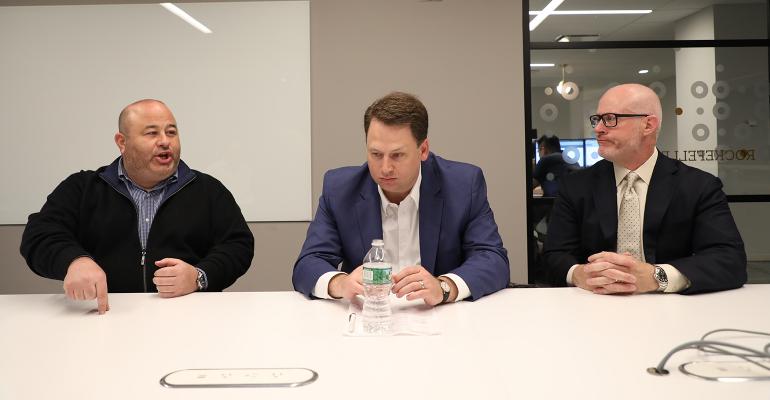Some independent broker/dealers, offices of supervisory jurisdiction and registered investment advisors market their advisors as “independent." But executives on the fee-only registered investment advisor side of the business say breakaway brokers are being sold a bill of goods when they join these models.
Such firms are offering pseudo self-determination or “captive independence,” but this model does not represent true independence, three executives recently told WealthManagement.com.
Tim Oden, national managing director for business development at Schwab Advisor Services; Brian Hamburger, the president and CEO of MarketCounsel and founder and managing director of the Hamburger Law Firm; and Shirl Penney, the founder and CEO of Dynasty Financial Partners, met with WealthManagement.com last week to discuss the future of the independent channel. The three knocked some firms for pitching a work environment that empowers advisors but falls short of delivering on the promises of true independence; these advisors, for one, are beholden to the b/d or OSJ.
Penney argued that brokerages exploring RIA business models are primarily taking a defensive position. Those solutions have been born out of the need to keep assets with the firm, which can serve as a custodian, earn interest on clients' cash, sell lending solutions and deliver their asset management products to investors. Those services create friction between advisors and clients, and advisors don't get a fair share of the revenue they generate, he said.
So-called captive independent advisors also don't have discretion in choosing technology and other services they work with, unlike other RIAs.
"We do the opposite, right? We're multicustodian. We have technology that allows advisors to shop the Street. We have multiple investment banks they can use, multiple trading desks ... seven or eight different private banks that they can go and shop loans from," Penney said.
In a model where the advisor is an employee, their choices and influence will be limited, according to Oden. But advisors who are truly independent answer to no one, and custodians that serve them, like Schwab, work for the advisor. That also creates a heightened level of competition between companies serving RIAs, which is good for the advisors, according to the three executives.
Even advisors at OSJs, which effectively operate as RIAs but are affiliated with a b/d, are captive to the brokerage, according to Penney.
"They're absolutely captive ... the vast majority of the OSJs that I've seen, that have contemplated looking to make a move, don't do it because when it comes time for the rubber to meet the road, what they realize is they can't herd the cats," Penney said. "A lot of these large IBDs are coming back and pushing on the OSJs because they know they have leverage. The OSJs, for the most part, can't leave."
Advisors at independent RIAs might also find themselves handcuffed to a firm or at the behest of its ownership. Seeking capital, some advisors have sold shares of their business to private equity firms, or chosen to join an RIA owned by one. It might be a good choice, but advisors should consider other sources of financing that won't put the value of their equity in jeopardy.
To be sure, at least one firm says it recognizes the potential in the independent financial advice channel and created a new line of business. First Clearing, the Wells Fargo subsidiary, now provides custody services to fee-only RIAs, who are free to use other custodians and choose the technology and service they want to use. UBS Wealth Management has also reportedly considered doing the same, and LPL Financial is also creating a new fee-only offering.
“If you look at the last one, three, five and 10 years in the [independent] space...If you believe that [growth] is a trend and not a fad, why would we not be doing this?" John Peluso, head of First Clearing, told WealthManagement.com in January.
Meanwhile, Bank of America's Merrill Lynch, which posted record profit of more than $1 billion in the first quarter, has effectively done the opposite. Andy Sieg, the head of Merrill Lynch Wealth Management, said in January that his firm “has no intention" of offering custodial services to RIAs.
"No one on this side of the table is underestimating the competition in or underestimating that business model," Hamburger said. "As it stands today, there's a ton of talent and intellectual capital that's on that side of the financial services industry. And we all know it, and we deal with it every day. Except the hearts and minds of consumers are changing. And that's a force that no matter how much intellect, no matter how much capital and how much inertia, which they've thrived on over the years, they can't stop that consumer demand."





